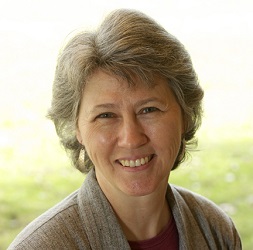Commentary on Philippians 1:3-11
The prayer of thanksgiving that opens Philippians describes the dialogue between present and future that makes Advent such a fruitful time for deep reflection.
- On the one hand, it draws our attention to the anticipated “day of Jesus Christ” (verse 6, 10; 3:20; 4:5) that sets this season apart (advent = coming).
- On the other hand, it reminds us that insight and discernment is required so that we may determine how best to engage the present as we journey towards that day (verse 9-11).
The notion of “the day of Jesus Christ” needs to be approached with some sensitivity. While for many it represents a future time when the justice, mercy, and grace of God will prevail, for others it can conjure up a day of unmitigated wrath. For still others it may be marked by questions such as “justice for whom?” and “what constitutes mercy?” in the face of injustices experienced.
Paul’s language in Philippians opens up additional questions. Following the initial reference to “the day of Jesus Christ” — suggesting a temporal moment – Paul speaks of his death as the moment when he will be united with Christ (Philippians 1:21-23) in resurrection. The emphasis here is relational (see also 3:14-18). Of course, the one does not negate the other, but taken together they remind us that there are different ways that people think about and anticipate what Paul calls “the day of Jesus Christ”: as a literal day, a longed-for hope, or even a metaphor.
The dialogue between present and future is brought to the fore by Paul’s own circumstances. Paul (with Timothy) writes to the Philippians while Paul is in jail. The uncertain outcome of his imprisonment sets before Paul the very real possibility of a death more imminent than he had perhaps anticipated. Yet Paul shows no fear of death. He writes that to live means freedom to labor for Christ while to die means that he will be with Christ (Philippians 1:20-23).
His confidence, however, is tempered: “Not that I have already obtained this [resurrection from the dead (Philippians 3:11)] or have already reached the goal; but I press on to make it my own, because Christ Jesus has made me his own” (3:12).
The path from present to future is not a straight line, but one filled with unexpected twists and turns. As Paul testifies, we are not protected along this path by our good deeds, industriousness, education, standing in the community, righteousness, gender identity, or racial-ethnic identity (Philippians 3:4-8). Nonetheless, we may find the resilience to persist, regardless of circumstances, by means of our faith/trust in Christ and by embodying the faithfulness of Christ in our relationship with God and engagement of others (3:9).
It is this resilience, sustained both by faith and faithfulness, which gives Paul confidence as he journeys towards the future. Yet it is not Paul’s own faith/faithfulness alone that sustains him. There is the faithfulness of Christ who “has made me his own” (Philippians 3:12). And there also is the faithfulness of the Philippians, who hold Paul in their hearts (1:7; the phrase may also be translated so that it is Paul who holds the Philippians in his heart; or possibly it is intended to convey both meanings). This faithfulness has been demonstrated, Paul says, in the ways they have supported him from the first day until now (1:5), not only through prayer, but as co-workers (4:3), and also financially (4:16-18).
Although faithful in their support of Paul, the Philippians are apparently troubled by divisions within their community. Whether these divisions are the result of conflict between individuals or factions, or perhaps between the community and Paul (possibly suggested by Philippians 4:10), or a combination thereof, is not wholly clear. Regardless, repeated calls throughout the letter to ‘be of one mind’ indicate that the matter is serious, creating a stumbling block in the life and work of the community (1:27; 2:2; 3:15; 4:2).
Paul responds in prayer, “that your love may overflow more and more with knowledge and full insight to help you to determine what is best” (Philippians 1:9-10). It is quite possible that Paul has some very specific ideas about “what is best.” Yet all of us, even Paul, tend to see “what is best” in terms of our own self-interests. In our efforts to resolve conflict and be of one mind, we may deliberately or inadvertently silence those whose views are different from our own, with the result that conflict is simply suppressed rather than resolved.
Yet Paul’s carefully chosen language suggests that he is not seeking unity of mind at the expense process. In determining what is best, Paul urges that: “love may overflow more and more with knowledge and full insight in order to determine what is best.” The verb translated as “determine” (dokimazein) can, in English, seem to suggest choosing one way over another, as if there is a single, right course of action. The Greek, however, suggests a dynamic process that involves scrutiny, testing, and discernment. Such a process requires taking time to become knowledgeable (not just opinionated), ask open-ended questions, and listen to the views of others in a way that leads to understanding.
In a world where Twitter rules, such a decision-making process runs counter to dominant social practices. It means entering into a process driven by questions rather than assumptions, marked by vulnerability, and that takes steps to expand the circle of conversation in order to produce a “harvest of righteousness that comes through Jesus Christ for the glory and praise of God” (Philippians 1:11). Such a process is, in itself, an act of faithfulness that builds resilience, supporting us on the journey between present and future that leads to the day of Jesus Christ and the glory of God.


December 9, 2018